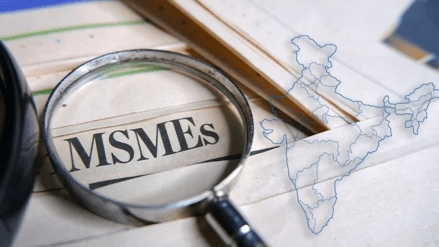The Centre, which has been working on a compact version of a Covid-like credit guarantee scheme for micro, small and medium enterprises (MSMEs), may roll it out only in the next quarter as modalities are taking time to work out, sources said.
The objective of the scheme is to provide comfort to banks to extend additional funds of up to 20% of the outstanding credit to an MSME, even to units whose accounts may have become special mention accounts (SMA) due to genuine business failures or delayed payments due to headwinds from US tariffs or other factors, sources said. The government will likely give a 100% guarantee cover to the 20% extra loans given to MSMEs by lenders.
Once the modalities of the scheme, like duration of the scheme, moratorium period and loan repayment periods, are crystallised, the government will approach the Reserve Bank of India (RBI) for regulatory forbearance for a limited period for SMA accounts for eligible businesses, sources said.
“The credit guarantee for the loans may be for 2-3 years,” an official said, adding that the details are still being worked out. Firms that deliberately default will be kept out of the scheme, the official added.
The loan defaults in MSMEs are on the decline both in terms of percentage to loan outstanding as well in absolute amounts.
Even though the stress is not as much as was anticipated earlier due to US tariffs and other global headwinds, still, the government is still planning to bring out such a scheme to ensure that economic activity further picks up and businesses that genuinely need it are supported, sources said.
Government schemes such as the Emergency Credit Line Guarantee Scheme (ECLGS) have supported asset quality.
The ECLGS, which was unveiled in 2020, was extended in phases till March 2023. Under the scheme, 11.9 million guarantees worth Rs 3.68 lakh crore were issued to MSMEs and other businesses. Loan defaults under the ECLGS are seen at just 2-3%, much lower than anticipated when the scheme was launched to give succour to MSMEs during the Covid-19 period hardships. This gives comfort to the government to bring out a compact version of the scheme to increase credit flow to the job-creating MSME sector.
Increasing formalisation of the MSME sector in recent years has improved data availability, helping banks refine their underwriting, credit decisioning and monitoring processes. Crisil said in a report recently.
Gross NPAs in the MSME segment, which account for 17% of overall bank credit, have declined secularly in recent years, to 3.6% as on March 31, 2025, from 8.7% as on March 31, 2021 (Covid time).
The US government imposed a 25% additional reciprocal tariff on Indian imports effective August 7, and raised the overall levy to 50%, with a 25% penal tariff linked to oil imports taking effect from August 27, impacting several labour-intensive sectors like textiles.
